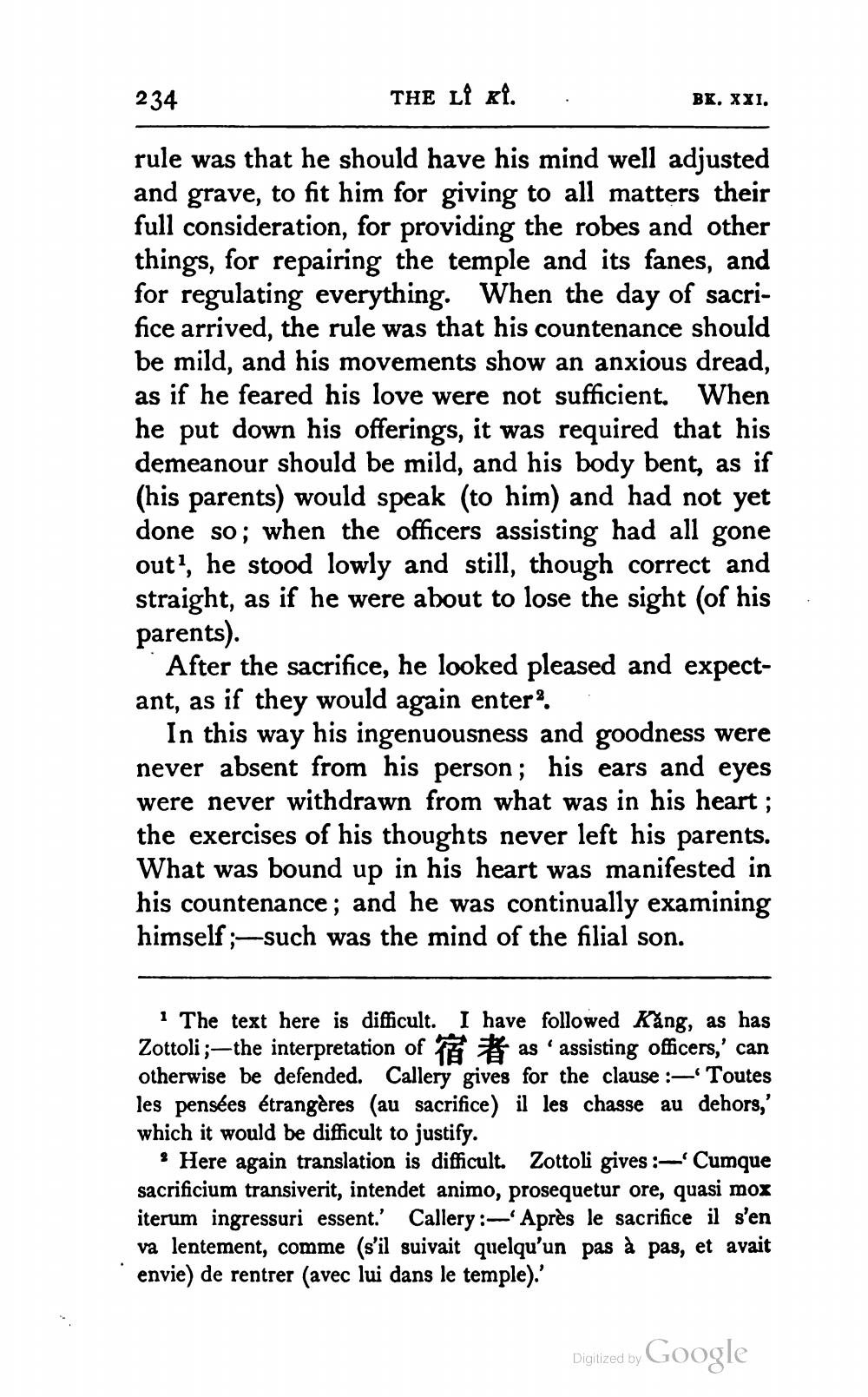________________
234
THE LÎ ki.
.
BK, XXI.
rule was that he should have his mind well adjusted and grave, to fit him for giving to all matters their full consideration, for providing the robes and other things, for repairing the temple and its fanes, and for regulating everything. When the day of sacrifice arrived, the rule was that his countenance should be mild, and his movements show an anxious dread, as if he feared his love were not sufficient. When he put down his offerings, it was required that his demeanour should be mild, and his body bent, as if (his parents) would speak (to him) and had not yet done so; when the officers assisting had all gone out, he stood lowly and still, though correct and straight, as if he were about to lose the sight (of his parents).
After the sacrifice, he looked pleased and expectant, as if they would again enter.
In this way his ingenuousness and goodness were never absent from his person; his ears and eyes were never withdrawn from what was in his heart; the exercises of his thoughts never left his parents. What was bound up in his heart was manifested in his countenance; and he was continually examining himself;—such was the mind of the filial son.
The text here is difficult. I have followed Kång, as has Zottoli;—the interpretation of
T a s assisting officers,' can otherwise be defended. Callery gives for the clause : Toutes les pensées étrangères (au sacrifice) il les chasse au dehors,' which it would be difficult to justify.
? Here again translation is difficult. Zottoli gives :—'Cumque sacrificium transiverit, intendet animo, prosequetur ore, quasi mox iterum ingressuri essent.' Callery: -- Après le sacrifice il s'en va lentement, comme (s'il suivait quelqu'un pas à pas, et avait envie) de rentrer (avec lui dans le temple).'
Digitized by Google




